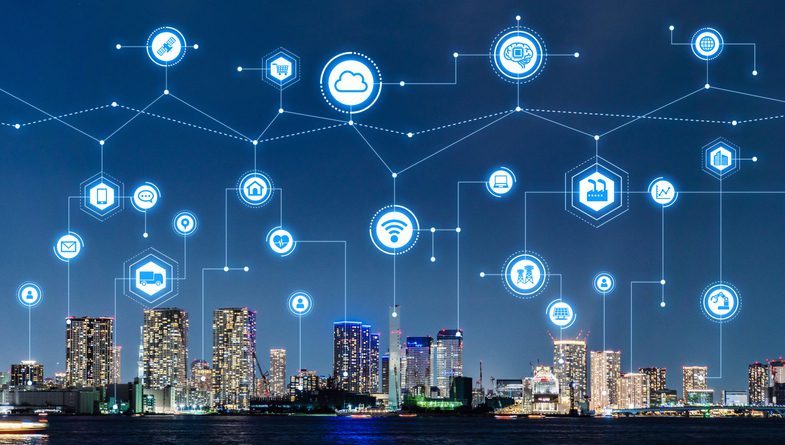One of the significant use cases when it comes to IoT is smart building technology. It is expected that this technology and advanced application of IoT is going to expand and unleash its value in the coming future. IoT has enabled the space management sector to conserve energy. Property and facility managers are in a struggle to tackle the energy mismatching challenge. They are trying to create energy-efficient facilities and buildings and transforming the warehouses. All of it was not possible without IoT as it has taken the space management to a whole new level where the property owners can achieve efficiency and sustainability.
Let’s look at some of the ways in which IoT has transformed and revolutionised the smart buildings.
Intelligent warehouses
One of the most significant roles of IoT in smart building technology is in the form of intelligent warehouses. Initially, you might think that warehouses have nothing to do with IoT, but that is not the case. Nowadays, warehouses are not only limited to inventory. Instead, they are transformed into smart hubs that help in bringing efficiency and effectiveness in the entire supply chain. All of it would not be possible without IoT, and it’s devices like sensors and smart equipment.
IoT is also aiding the warehouses in many other ways. It helps in maintaining end-to-end inventory tracking along with the volume of shipped items. Moreover, it also helps the warehouses in terms of providing data analytics that allows the warehouse managers in making decisions about various warehousing operations.
Energy-efficient buildings
The applications of IoT aren’t only limited to domestic and commercial buildings. It is also transforming the residential buildings in many ways. It is aiding the buildings to consume less energy and playing a vital role in smart building automation.
Smart building energy management systems are now embedded with IoT devices that are responsible for controlling the temperature and lighting of buildings. It also helps in the real-time transmission of data and eliminates the wastage of energy.
Smart cities
According to Gartner researchers, it is anticipated that more than 60% of the world’s population will reside in the towns by the end of 2050. This research puts severe concerns about the optimisation of resources. Once again, the Internet of Things can prove to be beneficial in managing these resources by:
- Providing a balanced water supply with the help of smart meters. These meters help in analysing information and provide real-time information to the residents about water consumption.
- Enabling lesser traffic jams through smart traffic signals. The data from cameras, smartphones, and other road sensors can help in spotting traffic incidents and helps the drivers in finding alternate routes.
- Providing reliable public transportation through connected devices. The smart sensors can help the businesses in implementing smart contingency plans and provide more reliable transportation information to the people. Moreover, IoT may also bring public safety in cities and towns by finding safety concerns.
Thus, computer-aided space comes with tons of benefits. No doubt, IoT is going to revolutionise the smart spaces and will continue to improve it. With the help of the right software, now it is possible to save plenty of energy and enable safer and fine-tuned buildings.
Related Articles
Related
Proving Facilities Management ROI in 2025 – Why Real-Time Data Is Now Non-Negotiable
Proving Facilities Management ROI with Real-Time Data Facilities Management (FM) leaders are under increasing pressure to prove the value they deliver. Whether it’s justifying budgets, defending asset strategies, or reporting to clients and stakeholders, the...
How IoT and CAFM Create Safer, More Efficient Care Environments
How IoT and CAFM Create Safer, More Efficient Care Home Environments The care home sector faces unique challenges in providing safe, comfortable, and efficient environments for residents and staff. Balancing the delivery of high-quality care with stringent regulatory...
Transform Facilities Management: Achieve More with IoT and CAFM Solutions
Transform FM Services: Achieve More with IoT and CAFM Facilities management (FM) and FM service providers face increasing challenges to deliver exceptional service, reduce costs, and meet sustainability goals. Embracing innovative technologies such as IoT (Internet of...

